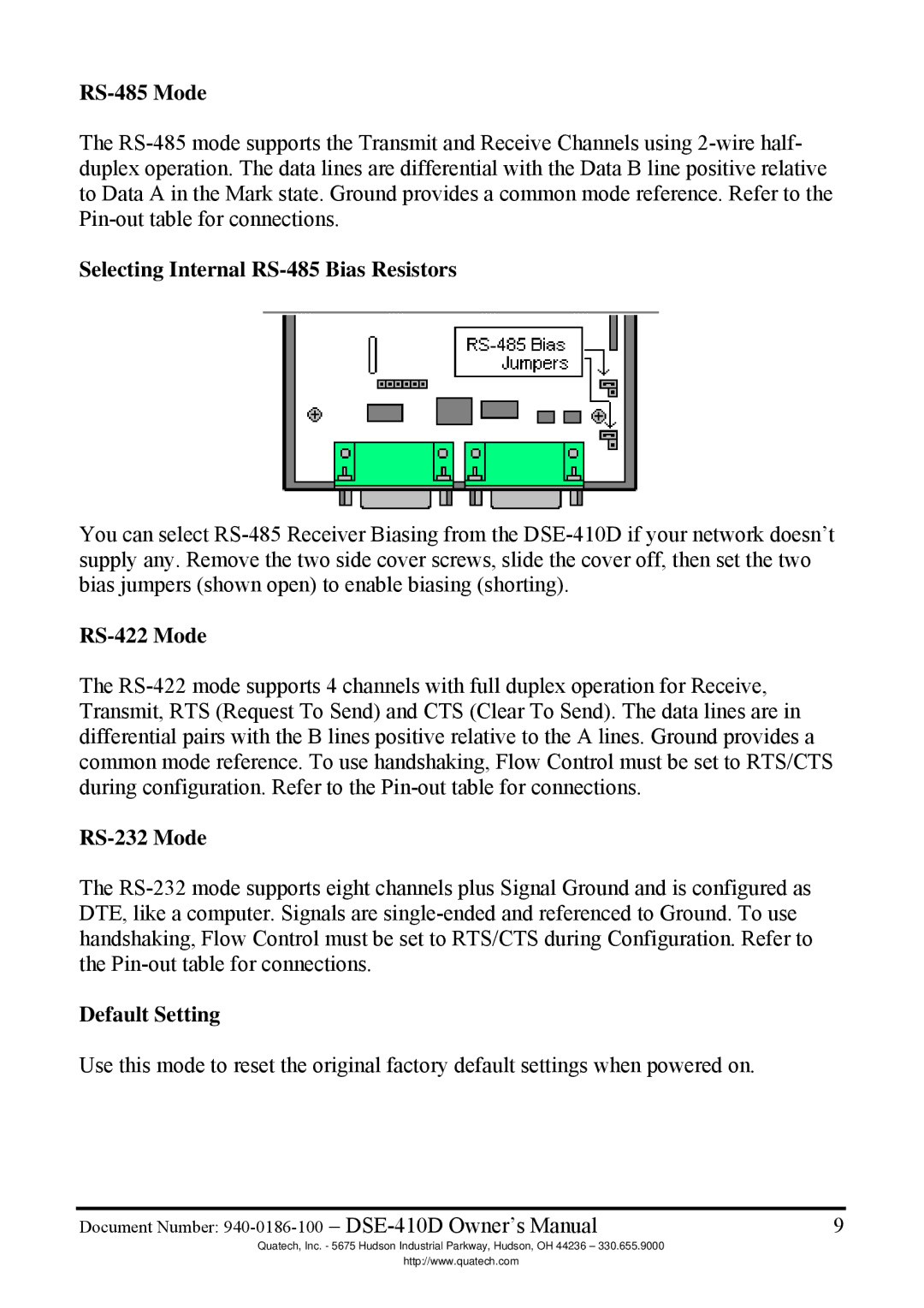
RS-485 Mode
The RS-485 mode supports the Transmit and Receive Channels using 2-wire half- duplex operation. The data lines are differential with the Data B line positive relative to Data A in the Mark state. Ground provides a common mode reference. Refer to the Pin-out table for connections.
Selecting Internal RS-485 Bias Resistors
You can select RS-485 Receiver Biasing from the DSE-410D if your network doesn’t supply any. Remove the two side cover screws, slide the cover off, then set the two bias jumpers (shown open) to enable biasing (shorting).
RS-422 Mode
The RS-422 mode supports 4 channels with full duplex operation for Receive, Transmit, RTS (Request To Send) and CTS (Clear To Send). The data lines are in differential pairs with the B lines positive relative to the A lines. Ground provides a common mode reference. To use handshaking, Flow Control must be set to RTS/CTS during configuration. Refer to the Pin-out table for connections.
RS-232 Mode
The RS-232 mode supports eight channels plus Signal Ground and is configured as DTE, like a computer. Signals are single-ended and referenced to Ground. To use handshaking, Flow Control must be set to RTS/CTS during Configuration. Refer to the Pin-out table for connections.
Default Setting
Use this mode to reset the original factory default settings when powered on.
Document Number: 940-0186-100 – DSE-410D Owner’s Manual | 9 |
Quatech, Inc. - 5675 Hudson Industrial Parkway, Hudson, OH 44236 – 330.655.9000
http://www.quatech.com

